Praise for Two Weeks in the Midday Sun
Perhaps the best book ever written about experiencing the Cannes Film Festival.... Classic.... To Ebert, who had already covered the annual festival for the Chicago Sun-Times over a dozen times before writing the book in 1987, Cannes clearly represents an intensely personal experience shared with 40,000 strangers.... Something of value sprang from his encounters with virtually every aspect of Cannes.
Booklist Film Journal
Eberts pieces have the punch and precision of good short fiction.
Denver Post
With a sharper eye for gossip and more detours into philosophical speculation than his reviews and interviews tend to exhibit, the author talks to such stars as Barbara Hershey and John Malkovich, attends packed and frenzied premiers, and hangs out over espresso at sidewalk cafs watching the famous, the nearly famous, and the hangers-on stride gaudily past.
Booklist
Sharp, wry andfor this Cannes veteranright on the mark.
New York Times
As most festival regulars do, Ebert appreciates what can be called the real Cannes, which has a useful and productive life the other 50 weeks of the year.... Frenzies and all, Ebert brings it seductively back.
LA Times
Critic Eberts journal of the annual two-week movie circus known as the Cannes Film Festival is about as nourishing as a croissant, but like that airy pastry, its fun to devour.
Library Journal
An affectionate portrait of the French film festival and the city that hosts it.
Chicago Tribune
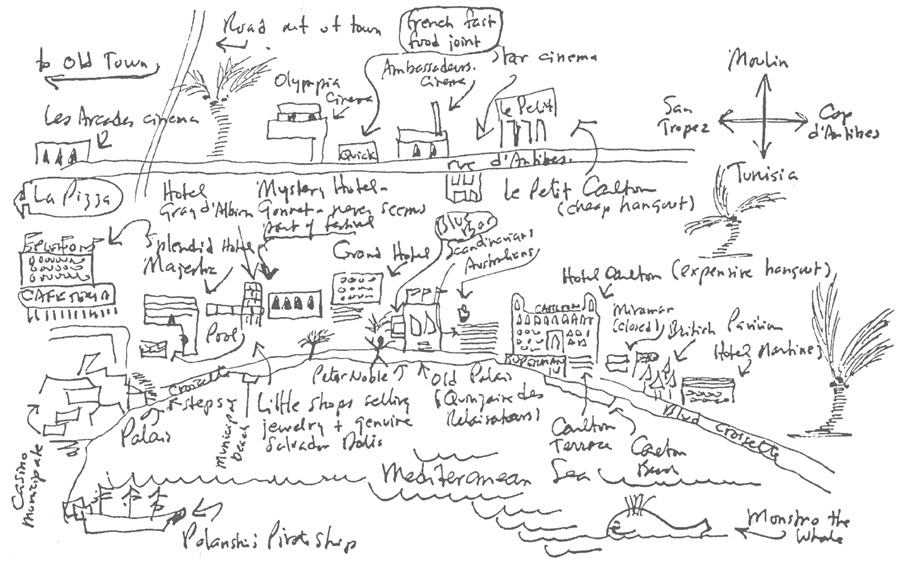

Roger Ebert (19422013) was a film critic for the Chicago Sun-Times for more than forty years and was considered one of the nations most prominent and influential figures in the industry. Over the course of his prolific career, he taught classes on film as a guest lecturer at the University of Chicago, aired his own television show, contributed to and wrote several screenplays, and published his own books. In 1975 he became the first film critic to win the Pulitzer Prize. That same year he teamed up with his rival critic, Gene Siskel of the Chicago Tribune, to host a movie review program on public television. Sneak Previews became the most popular entertainment program on the PBS network and gave Ebert a nationwide audience. He was also a prolific writer, publishing screenplays, compilations of reviews, and over twenty books. He was the author of numerous books on film in particular, including Awake in the Dark: The Best of Roger Ebert, the Great Movies essay collections, and a memoir, Life Itself. Ebert died on April 4, 2013, at age 70, in Chicago, Illinois.
Two Weeks in the Midday Sun
A Cannes Notebook
TEXT AND DRAWINGS BY
Roger Ebert
WITH A NEW FOREWORD BY
Martin Scorsese
AND A POSTSCRIPT,
1997: Scorsese Goes to Dinner
THE UNIVERSITY OF CHICAGO PRESS
CHICAGO AND LONDON
The University of Chicago Press, Chicago 60637
The University of Chicago Press, Ltd., London
1987 by Roger Ebert
Foreword 2016 by The University of Chicago
Postscript, 1997: Scorsese Goes to Dinner 1997 by Roger Ebert
All rights reserved. Published 1987.
University of Chicago Press edition 2016
Printed in the United States of America
25 24 23 22 21 20 19 18 17 16 1 2 3 4 5
ISBN-13: 978-0-226-31443-3 (paper)
ISBN-13: 978-0-226-31457-0 (e-book)
DOI: 10.7208/chicago/9780226314570.001.0001
Library of Congress Cataloging-in-Publication Data
Ebert, Roger, author, illustrator.
Two weeks in the midday sun : a Cannes notebook / text and drawings by Roger Ebert ; with a new foreword by Martin Scorsese and a Postscript, 1997: Scorsese goes to dinner. University of Chicago Press edition
pages cm
Previous edition: Kansas City : Andrews and McMeel, 1987.
ISBN 978-0-226-31443-3 (pbk. : alk. paper) ISBN 978-0-226-31457-0 (e-book)
1. Cannes Film Festival. 2. Film festivals. I. Scorsese, Martin, author of foreword. II. Ebert, Roger. Scorsese goes to dinner. III. Title. IV. Title: Cannes notebook.
PN1998.E24 2016
791.4309'44941dc23
2015034611
 This paper meets the requirements of ANSI/NISO Z39.48-1992 (Permanence of Paper).
This paper meets the requirements of ANSI/NISO Z39.48-1992 (Permanence of Paper).
Foreword
THE CANNES FILM FESTIVAL. Or, as its known to the people who go there year after yearthe filmmakers, the entertainment journalists, the film reviewers and critics, the sales agents, the producers, the stars and their entouragesjust plain Cannes. If youre talking to a normal human, theyre talking about the Riviera, the beach, the hotels, the sun. But for a film person, Cannes means the festival, period.
You go to the festival year after year, and you get to a point where you could walk it in your sleepin fact, thats pretty much what youre doing, because if youre in Cannes, unless youre French or Italian, youre jet-lagged. From the Palais, the nerve center (the press and public screenings, the market, the receptions and press conferences), you turn right and walk up the Croisette to the Quinzaine, the hotels (the Majestic, the Grand Hotel, the Carlton, and the Martinez), and the private beaches. Or, you turn left out of the Palais and go to the port, the restaurants, and, if youre so inclined, the old town up the hill. If youre there for the festival, thats Cannes. Unless youre ensconced across the bay on Cap dAntibes.
And a certain madness sets in. The journalists and critics rushing between screenings, maybe stopping off at the press room or their hotel room to file. The meetings, meetings, and more meetings happening in cafs and restaurants, up and down stairways and on line for movies, in corners, anywhere you can find a place to sit or even stand. The crowds, thronging the streets by about six to get a glimpse of this actor or that director being driven to the Palais for their walk up the red carpet (the marche rouge). The paparazzi, shouting out the names of those actors and directors as theyre led up the stairs, one at a time, directed by their press teams to turn this way and then that way for the cameras. The fireworks. The announcements over the PA accompanied by blaring music. And the people, people, and more people.
And yes... they show movies, too.
Year after year, the players change, the circumstances change, the films change, the writers are now filing online and tapping out their reports and reviews on their iPads or even their iPhones, but Cannes remains the same. And very few people have ever captured it as vividly or with as much charm as Roger Ebert does here.
I myself was not in Cannes in 1987I was in Morocco getting ready to shoot The Last Temptation of Christbut Id been there many times before that. Mean Streets had played at the Quinzaine des Ralisateurs, or the Directors Fortnightthis is the alternate festival, founded in opposition to Cannes after May 1968, the year that the festival was shut down, but at this point basically considered as another section. I was there with Taxi Driver in 1976, when Roger saw it for the second time. We won the Palme dOr that year. I got the news over the phone, in LA, where I was sound asleep, having just flown back from Cannes because I was convinced that we didnt have a chance of winning anything. The jury president that year, Tennessee Williams, had let it be known that he disapproved of our picture, and when I ran into Costa-Gavras and Sergio Leone, who were also on the jury, I told them that we were all planning on going home the next morning. Maybe you should stick around for a few days, they both told me. A couple times. I didnt take the hint.
Next page
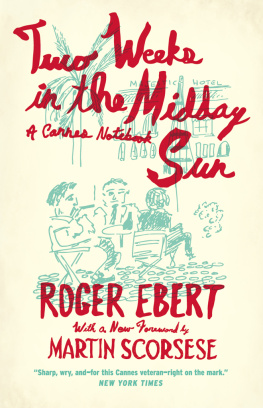
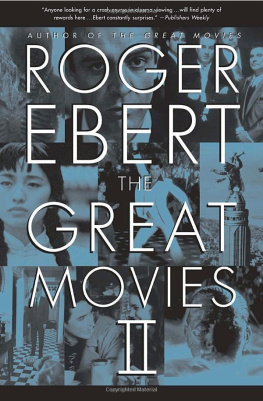
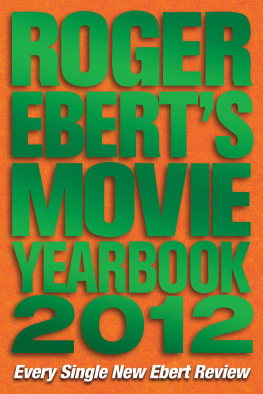

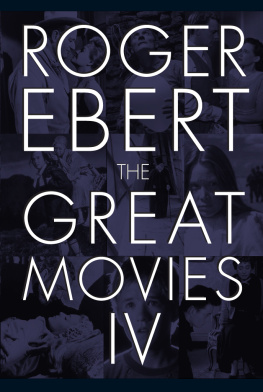
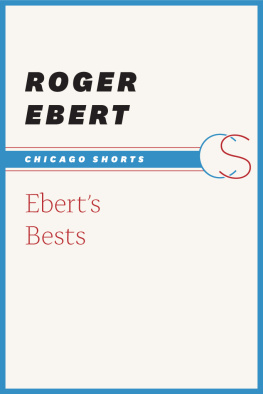
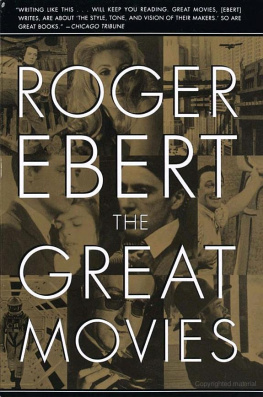
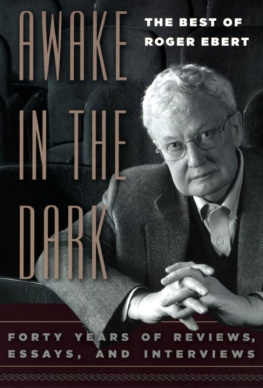
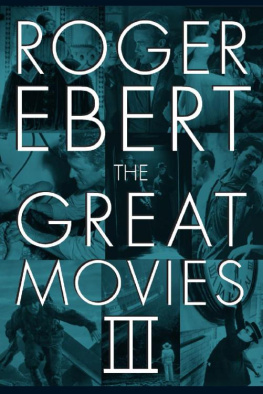


 This paper meets the requirements of ANSI/NISO Z39.48-1992 (Permanence of Paper).
This paper meets the requirements of ANSI/NISO Z39.48-1992 (Permanence of Paper).